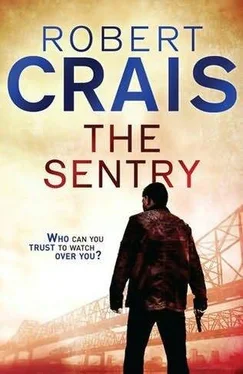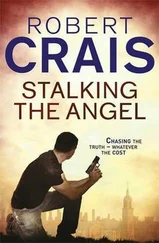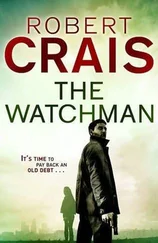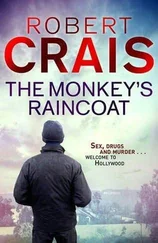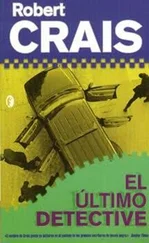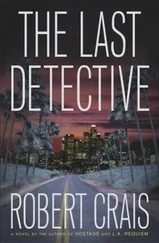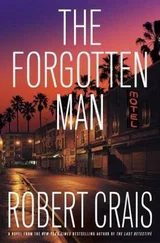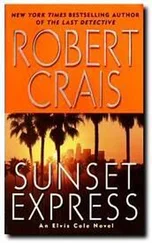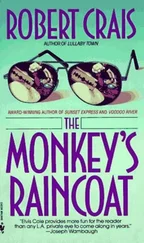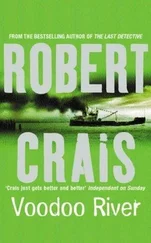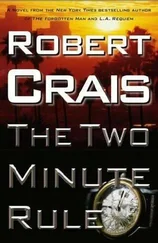Robert Crais - The sentry
Здесь есть возможность читать онлайн «Robert Crais - The sentry» весь текст электронной книги совершенно бесплатно (целиком полную версию без сокращений). В некоторых случаях можно слушать аудио, скачать через торрент в формате fb2 и присутствует краткое содержание. Жанр: Триллер, на английском языке. Описание произведения, (предисловие) а так же отзывы посетителей доступны на портале библиотеки ЛибКат.
- Название:The sentry
- Автор:
- Жанр:
- Год:неизвестен
- ISBN:нет данных
- Рейтинг книги:3 / 5. Голосов: 1
-
Избранное:Добавить в избранное
- Отзывы:
-
Ваша оценка:
- 60
- 1
- 2
- 3
- 4
- 5
The sentry: краткое содержание, описание и аннотация
Предлагаем к чтению аннотацию, описание, краткое содержание или предисловие (зависит от того, что написал сам автор книги «The sentry»). Если вы не нашли необходимую информацию о книге — напишите в комментариях, мы постараемся отыскать её.
The sentry — читать онлайн бесплатно полную книгу (весь текст) целиком
Ниже представлен текст книги, разбитый по страницам. Система сохранения места последней прочитанной страницы, позволяет с удобством читать онлайн бесплатно книгу «The sentry», без необходимости каждый раз заново искать на чём Вы остановились. Поставьте закладку, и сможете в любой момент перейти на страницу, на которой закончили чтение.
Интервал:
Закладка:
Father Art was not a priest, though the women and kids in his care called him Father and blessed him with the love and respect of a man of God. Artie Alvarez was a murderer. He murdered his first and only victim when he was eleven years old-a thirteen-year-old Shoreline Crip named Lucious T. Jefferson, whose only mistake was pedaling a blue Schwinn bike past Artie's house. Artie was brutally honest when he told the story of how and why he killed the boy, which he told often to elementary-school children, civic leaders, and business groups throughout the Southland. He spoke to kids because he hoped to change their lives for the better. He spoke to civic leaders and business groups to raise money to fund his programs.
The heat was merciless on an August afternoon the day Artie committed homicide. Artie, his two younger brothers, and baby sister were on their front steps, waiting for their mother to return from work as a housekeeper in Cheviot Hills. Their father was away, which meant he was doing time in Soledad Prison. Artie recalls that he and his siblings were bored, and making up lies about their father, entertaining themselves by pretending he was a larger-than-life outlaw instead of a drunken bully with mild retardation from huffing too much paint thinner and glue. Artie and his siblings had reached a lull in the stories when Lucious Jefferson pedaled past. Artie's baby sister, Tina, was on his knee when Artie saw Jefferson on the shiny blue bike. Jefferson wasn't even looking at them. He was pedaling past, taking his time, and for no other reason than the rage in his heart, Artie called out- "Get off our street, you Crip nigger!"
Jefferson, who, until this time, had paid no attention to the four children on the steps, flashed a gang sign and shouted back.
"Spic beaner! Fuck yo' pussy ass!"
As Arturo told the story, he flew into a blinding rage that left him alone in the world. His two brothers and sister vanished. Thoughts of his mother, now only moments from home, vanished, and reason as civilized men know reason ceased to exist. He has no memory of pushing his sister from his knee, nor of her screaming when her head split so deeply on the step she would require eight stitches.
Artie ran into his house, snatched his father's.22-caliber rifle from beneath his mother's bed, frantically checked to see it was loaded, then crashed out of the house. He caught Lucious Jefferson a block and a half later where Lucious was waiting to cross a busy street, whereupon he pushed the rifle's muzzle into the older boy's back and pulled the trigger. Killed him. Murdered him. 187'd his ass.
Lucious Jefferson did not even see Artie coming. He was watching the traffic for a break in the onrushing river of cars when Artie ran up behind him and shot him between the T5 and T6 thoracic vertebrae, destroying his spinal cord and sending a bone chip from the T6 transverse process into Jefferson's pulmonary artery. Artie would later say, in that moment, the real world and the reality of what he had done crashed into him like a freak wave, waking him from the mindless place of his rage by crushing him with the horror of what he had done. Lucious collapsed onto his bike, fell, and landed on his back. His eyes were wide as saucers, so wide they were balloons bulging out of his head. Artie saw the terror and pain in the dying boy's eyes, a horrible pain that flowed from his eyes like a spirit leaving his body and flowed into Artie, forever changing his life.
Following that terrible event, Artie Alvarez spent three years at a special facility for boys, where he kept to himself, took part in regular counseling, and was visited by Lucious Jefferson's eyes every night in his sleep. The arrogance of his youth was replaced by guilt and a thoughtful shame. He eventually obtained his bachelor's and master's degrees in psychology at Cal State Northridge, and became a counselor to youth groups, nonprofit organizations, and outreach programs throughout the city, with the goal of ending hate and violence through education. He created Angel Eyes as a nonprofit outreach program for at-risk children, and worked with gangs throughout the city. At-risk meant at risk of joining a gang, at risk of going back to drugs, at risk of becoming a prostitute, at risk of turning to crime. The Angel Eyes message was simple-act as if someone is watching, which was the Angel Eyes motto: Someone is Watching. His audiences thought this was a reference to God until Artie explained that not a night had passed without his seeing Lucious Jefferson's tortured eyes in his dreams. Lucious Jefferson was watching.
Angel Eyes HQ occupied a small stucco home on a residential street with mixed zoning ordinances. When Pike rolled up, the house was surrounded by a couple of dozen older children and younger teenagers of both sexes, along with two counselors in their early twenties. Most of the kids were Latin, but African-American, Anglo, and Asian kids were among them. Armed with brushes and rollers, they were painting the house a peaceful beige color under Artie's direction.
When Artie saw Pike, he came to the street and opened the gate. He was wearing shorts, sandals, and a T-shirt with the Angel Eyes logo.
"Marisol told me you'd be dropping by. Good to see you, my friend."
"Got a minute?"
"Hang on-"
Artie called out to his army of painters.
"Ladies and gentlemen, here is my friend, Mr. Joe Pike. Please welcome him."
The kids answered back.
"Hello, Mr. Pike. Welcome to Angel Eyes."
Artie beamed, and Pike nodded.
"How many you have here?"
"Twenty-three here today. Another twenty at the South L.A. facility. Eighteen up in Van Nuys."
Though Artie employed counselors who resided at the various houses, his kids weren't allowed to live on-site except for short-term cases where they risked at-home physical abuse or assault from neighborhood gangs. The sites existed to give them a place to go, counselors they could talk to, tutors to help with their studies, and a peaceful harbor from the stormy waters of their lives. Artie Alvarez charged nothing for these services, and covered his costs by fund-raising and donations. Though the grounds were neat and orderly and the house was being painted, Pike noticed missing roof tiles, torn window screens, and other indications that Artie was running low on funds. When Pike mentioned it, Artie shrugged.
"It's the economy. The state's broke. Rich people aren't feeling as rich as they used to, so they give less."
He smiled at the kids as if he admired their courage to change.
"We'll get by. Now c'mon in, and let's talk this out."
Pike followed Artie into the house. The living room was set up like an office and waiting room with two desks, two couches, and two chairs. A pretty young Latina who was probably Marisol was at the front desk, speaking on the phone while typing at a computer.
As they passed, Artie said, "Joe, Marisol, Marisol, Joe."
Marisol raised a hand in greeting without interrupting her conversation. She was trying to convince a local restaurant to donate their leftover food to a shelter for abused children. Pike noticed a pearl of sweat running down the side of her face before she brushed it away. The house was not air-conditioned.
Artie led him to what was once the master bedroom, though it now served as Artie's office. Every window was open and a couple of fans moved the air, but it was still hot. The cool ocean breezes rarely ventured this far from the sea.
Artie dropped into a secondhand chair behind a cast-off teacher's desk.
"Sit. What can I do for you?"
"Venice Trece?"
"All right. They've owned the Westside for years. Which clique are we talking about?"
"Malevos Pacificos."
"Pacific Gangsters. They're at the end of the boulevard, right by the water."
"I want to speak with the jefe."
Читать дальшеИнтервал:
Закладка:
Похожие книги на «The sentry»
Представляем Вашему вниманию похожие книги на «The sentry» списком для выбора. Мы отобрали схожую по названию и смыслу литературу в надежде предоставить читателям больше вариантов отыскать новые, интересные, ещё непрочитанные произведения.
Обсуждение, отзывы о книге «The sentry» и просто собственные мнения читателей. Оставьте ваши комментарии, напишите, что Вы думаете о произведении, его смысле или главных героях. Укажите что конкретно понравилось, а что нет, и почему Вы так считаете.
